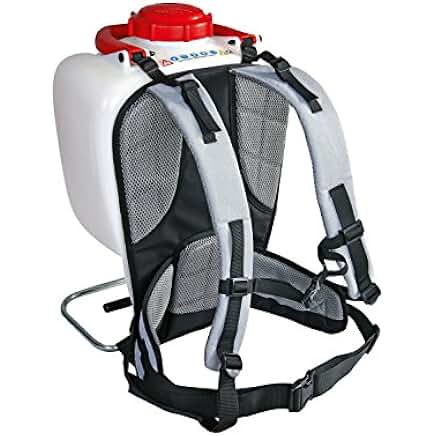Let’s face it: scrubbing your outdoor patio, deck, or driveway isn’t exactly anyone’s idea of a fun weekend activity. But with the right tools, you can transform this chore from a back-breaking ordeal into a manageable (and even slightly satisfying!) task. And at the heart of efficient outdoor cleaning lies the perfect floor scrub brush. This guide will walk you through everything you need to know to choose the best one for your needs, ensuring sparkling clean surfaces without sacrificing your weekend.
Why Choose a Power Scrub Brush?

Before we dive into the specifics, let’s address the elephant in the room: why bother with a power scrub brush when a good old-fashioned broom and bucket might seem sufficient? The answer lies in efficiency and effectiveness. A power scrub brush tackles tough grime, mildew, and ingrained dirt with significantly less effort than manual scrubbing. This means less time spent on your knees, less strain on your back and arms, and ultimately, a much cleaner result.
Understanding Torque: The Unsung Hero of Scrubbing Power
Now, this is where things get a bit technical, but bear with me. Torque, often overlooked, is the crucial factor determining the cleaning power of your scrub brush. Torque is the rotational force that allows the brush to spin effectively against resistant surfaces. A higher torque rating means more power to cut through stubborn dirt and grime. Think of it like this: a high-torque engine can easily handle a heavy load, just as a high-torque scrub brush effortlessly cleans tough stains. Look for brushes with high torque ratings, especially if you deal with heavily soiled surfaces.
Engine Options: Gas vs. Electric

The power source of your scrub brush significantly impacts its performance and suitability for different tasks. Let’s compare the two most common options:
Gas-Powered Scrub Brushes:
Gas-powered brushes offer unparalleled power and endurance, making them ideal for large areas and heavy-duty cleaning. They typically boast higher torque ratings and can handle even the most stubborn grime. However, they come with drawbacks: they’re heavier, louder, require regular maintenance (gas, oil changes), and emit fumes. Consider a gas-powered option if you have a vast area to clean or frequently encounter incredibly tough stains.
Electric Scrub Brushes:
Electric brushes are generally lighter, quieter, and more environmentally friendly than their gas counterparts. They’re easier to maintain, requiring only occasional cleaning and battery charging. However, their power might be less impressive than gas models, particularly when tackling incredibly thick layers of grime. Battery life is also a concern; ensure the battery lasts long enough for your intended cleaning sessions. Cordless electric models offer flexibility, but corded versions usually offer superior power and run time without the worry of battery depletion.
Torque and Cleaning Specs: What to Look For

The ideal torque and cleaning specs vary based on your needs. Here’s a breakdown to guide you:
- Torque (measured in ft-lbs or Nm): Higher is better, especially for tougher jobs. Look for at least 20 ft-lbs for most applications. For extremely heavy-duty cleaning, aim for 30 ft-lbs or more.
- Brush width: A wider brush covers more ground faster, ideal for large patios or driveways. However, a narrower brush might be more maneuverable in tight spaces.
- Water tank capacity: A larger tank means fewer refills, which translates to less downtime during cleaning.
- Pressure adjustment: The ability to adjust water pressure is crucial for versatile cleaning, letting you tackle delicate surfaces as well as tough grime.
Competitor Comparison: Finding the Right Fit

Let’s briefly compare some leading brands and models to illustrate the points we’ve covered. (Note: Specific model names and specs are subject to change. Always check the manufacturer’s website for the latest information.)
Brand A: Known for robust gas-powered models with exceptionally high torque, suitable for professional-level cleaning. However, these come at a premium price point and might be overkill for casual homeowners.
Brand B: Offers a wide range of electric and gas models, catering to various budgets and cleaning needs. They usually prioritize ease of use and maintenance. Their mid-range electric models provide excellent value for most homeowners.
Brand C: Specializes in lightweight, cordless electric brushes, prioritizing portability and maneuverability. These are great for smaller patios and decks, but might lack the power for severely soiled surfaces.
Practical Advice and Tips for Using Your Outdoor Floor Scrub Brush
Once you’ve selected your perfect scrub brush, remember these tips for optimal performance and longevity:
- Always pre-treat stubborn stains: Apply a cleaning solution to particularly dirty areas before using the brush to maximize cleaning efficiency.
- Use the appropriate brush attachments: Many brushes offer interchangeable attachments designed for different surfaces (e.g., concrete, wood, tile).
- Rinse frequently: Regular rinsing prevents dirt buildup in the tank and ensures consistent cleaning power.
- Follow manufacturer’s instructions: Each model has specific operating procedures and maintenance requirements.
- Store properly: After each use, clean your brush thoroughly and store it in a dry, protected place.
Conclusion: The Sparkling Clean Finish You Deserve
Choosing the right outdoor floor scrub brush is an investment in time saved, physical effort conserved, and a dramatically cleaner outdoor space. By understanding the key features, including torque, engine type, and cleaning specifications, you can confidently select the perfect model to meet your cleaning needs. With a little research and the guidance provided in this ultimate guide, you’ll be well on your way to effortlessly achieving that sparkling clean finish you’ve always dreamed of.



